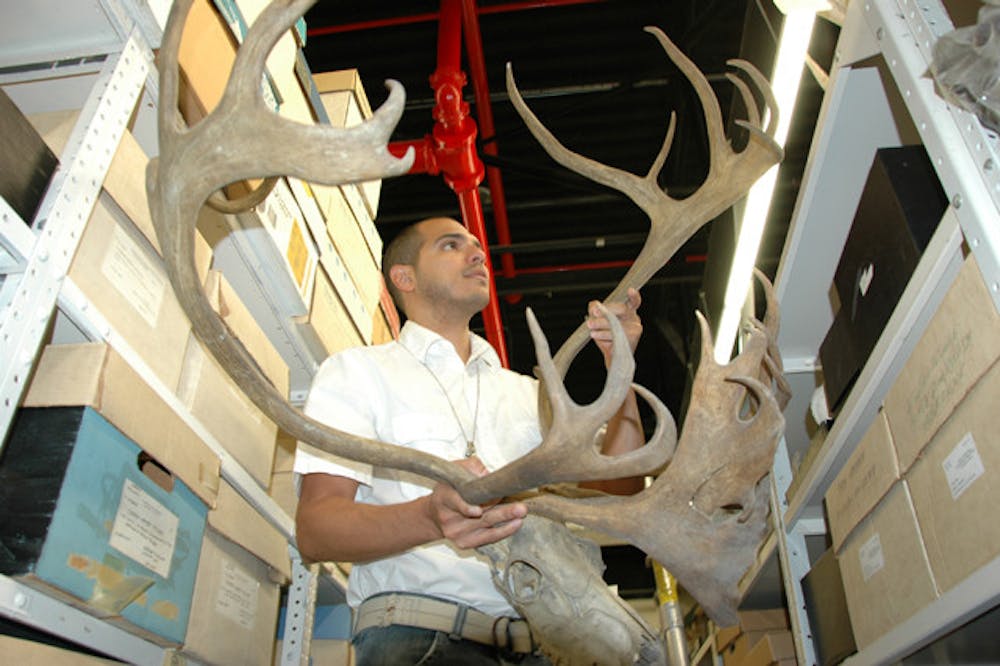An ecosystem of the dead rests hidden behind tendril-covered walls, guarded by a skeleton shark.
Sitting on shelves and in drawers, remains of about 32,000 mammals wait to be noticed by the world of the living.
A library of mammals inhabits Dickinson Hall. For 40 years, bones and skins have sat in rows of cabinets, carefully labeled and preserved for the Florida Museum of Natural History.
Vampire bats lay harmlessly on foam mats, their teeth still intact. Across the room, whale vertebrae the size of a basketball line a wall.
A frozen fruit bat was rediscovered in one of the museum’s freezers one summer. Even defrosted, its wings are pinned close to its chest, frozen in a vampiric-looking state of sleep.
“A thousand piece puzzle,” Angelo Soto, a UF doctoral candidate in biology, said about the bones.
Some remains are a few years old. Some are hundreds. Researchers travel across the country and over oceans to see creatures collected from places ranging from Alachua County to Pakistan.
A monster of a bone, about 13 feet long and a foot wide in parts, was brought to the library by a man who was told he’d purchased mammoth ivory. What he actually had was the jawbone of a baleen whale, which cannot be legally taken across state lines. It was immediately donated.
Part of Candace McCaffery’s job as collection manager for the museum is to clean and assemble skeletons.
McCaffrey said the museum uses pieces of the collection to educate people about these animals.
The collection has become so full that the museum can’t take certain animals anymore, such as manatees and whales, McCaffrey said. The bones of about 300 manatees are held in a wall of boxes. Each manatee gets about two boxes the size of a microwave.
Soto said some of the research that comes out of visits to the library are about animal conservation.
The animal remains were donated to the museum piece by piece.
“What we do is not just store and collect them just to have these fun collections, like as if they were coins,” Soto said. “These collections serve a specific purpose.”






